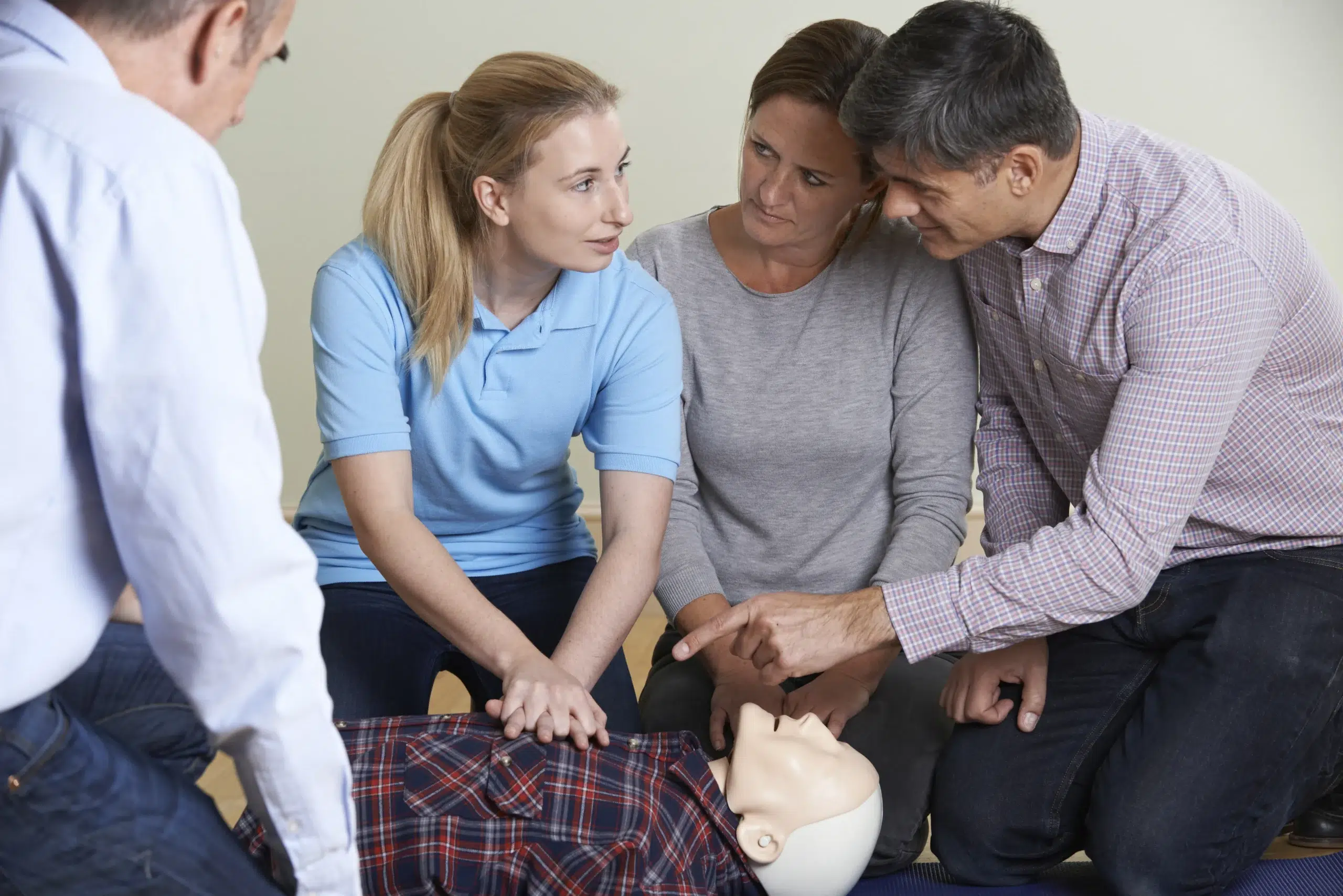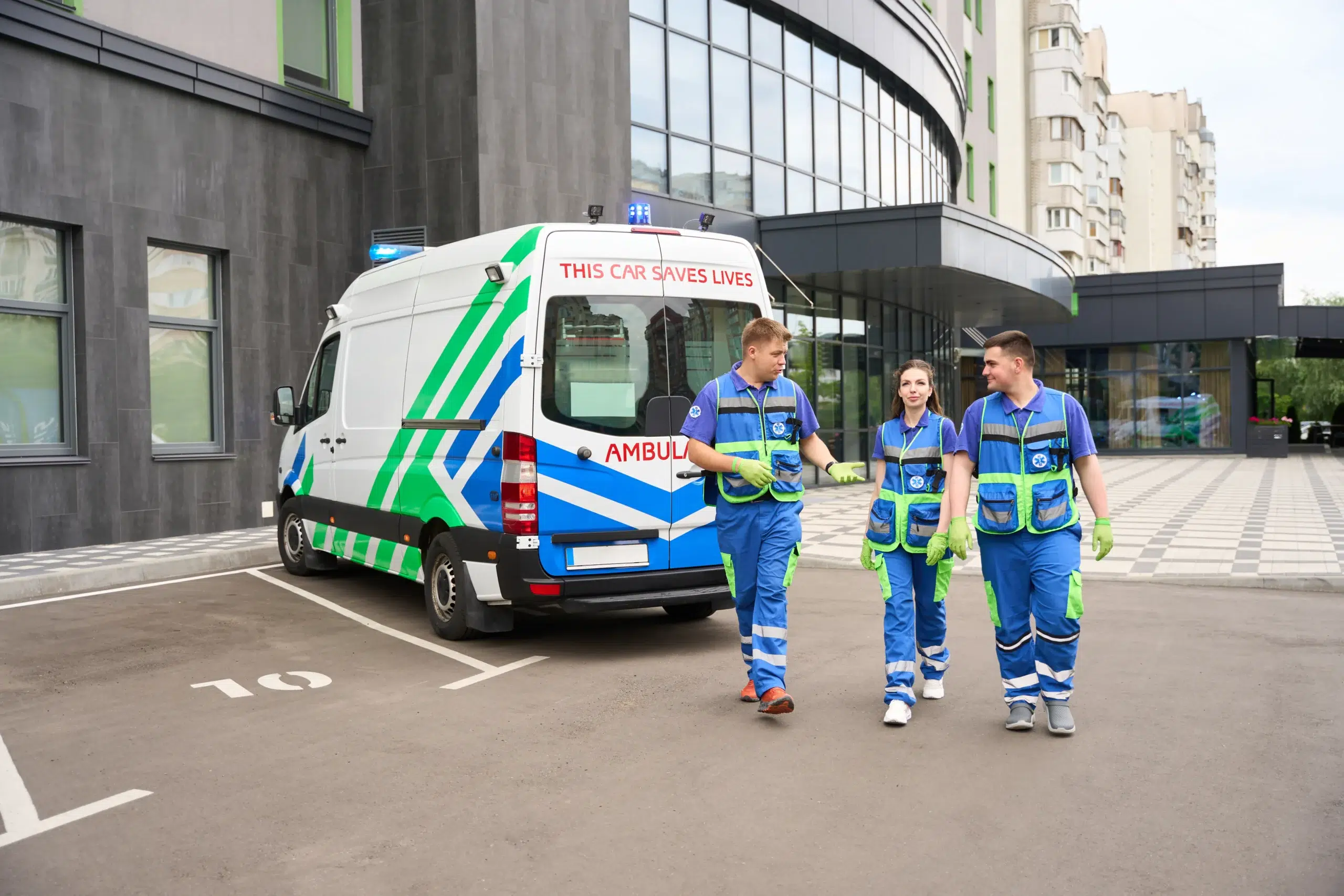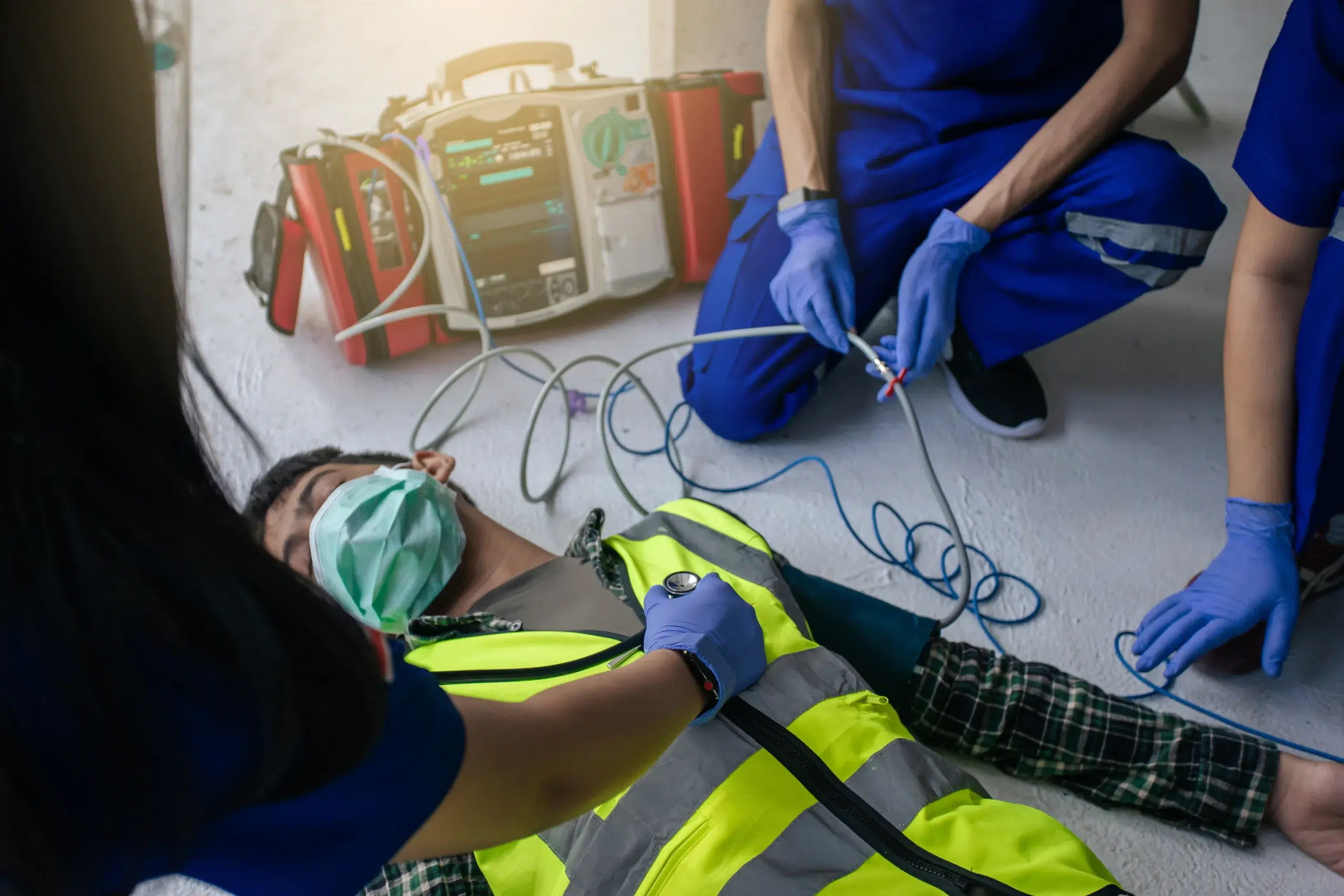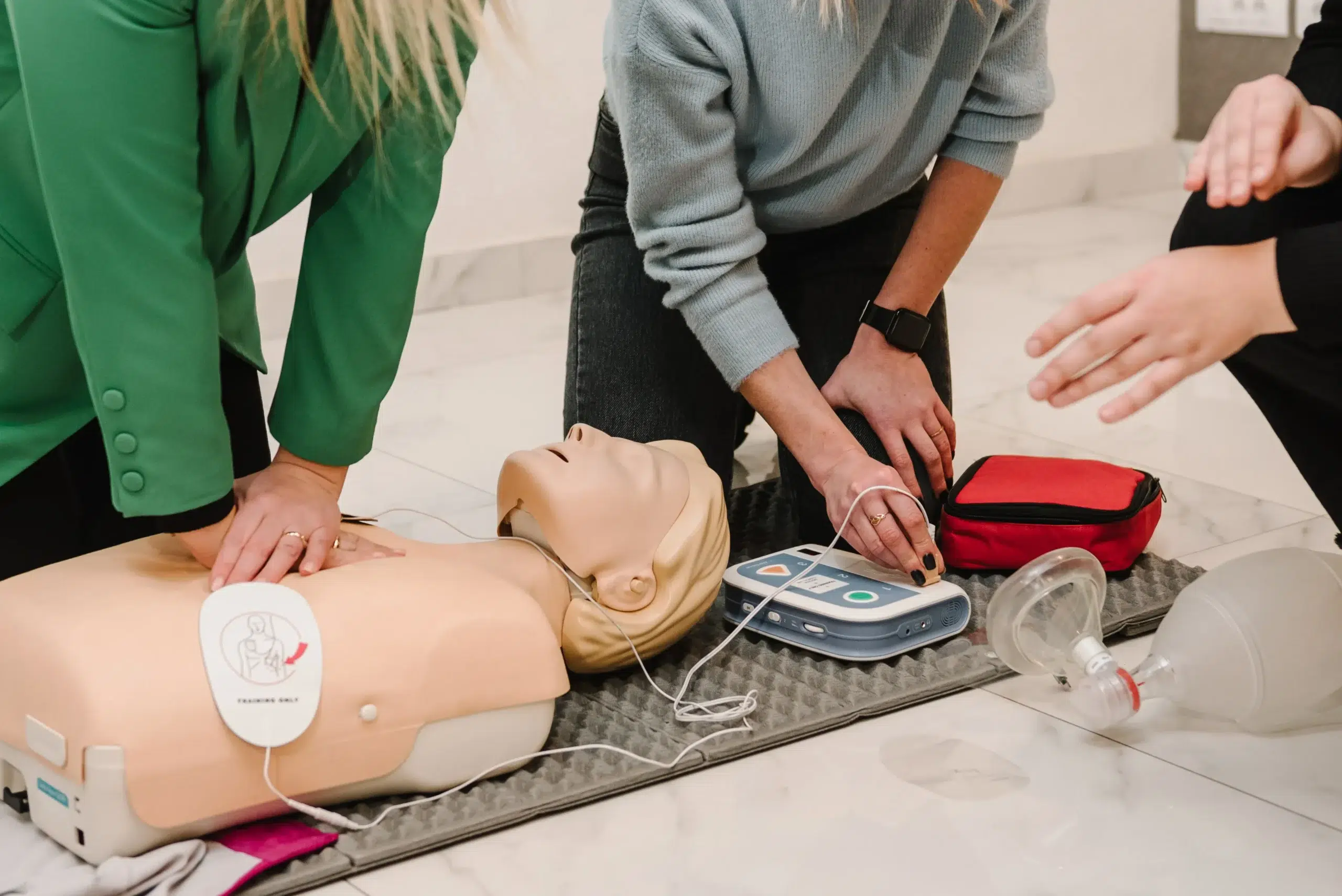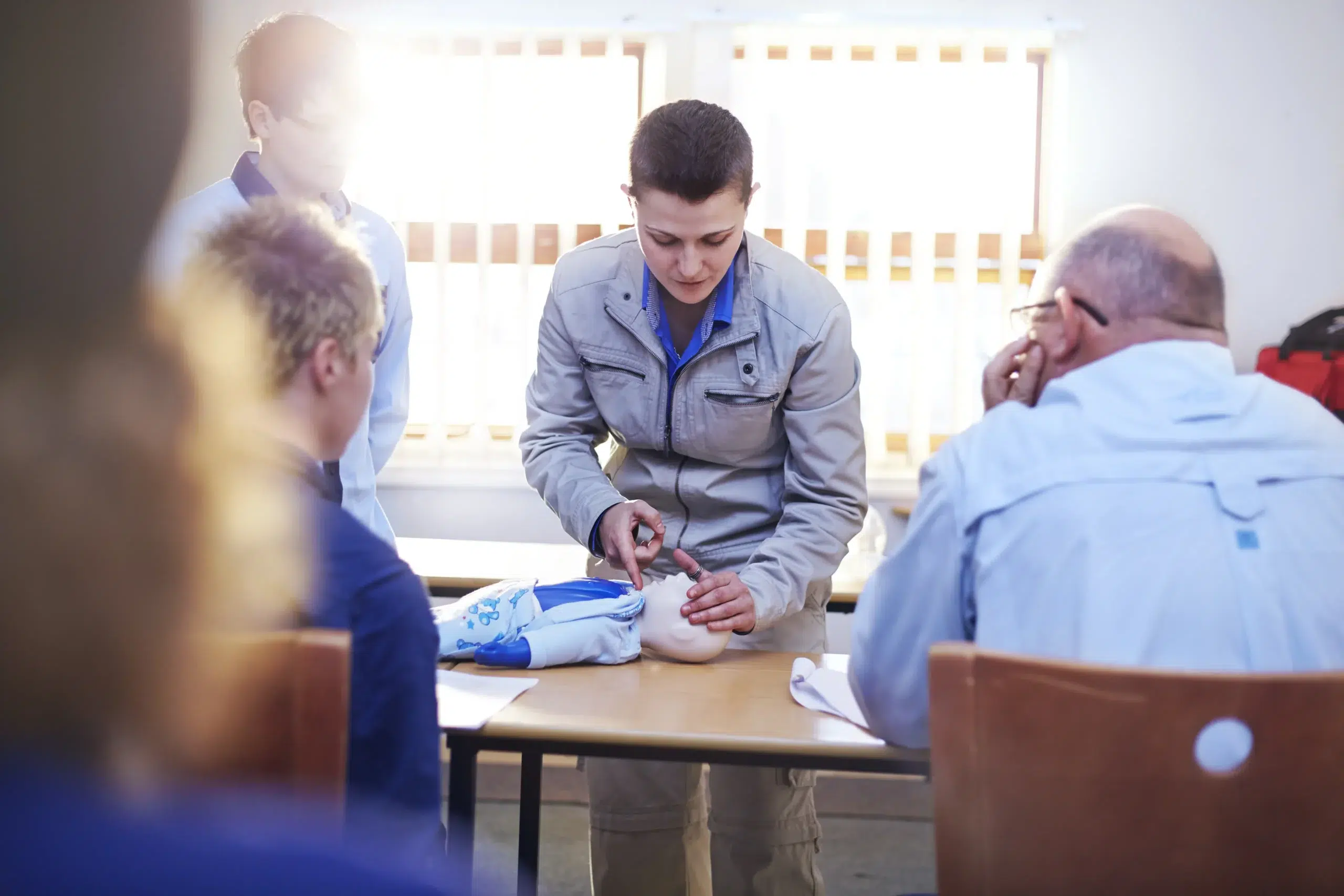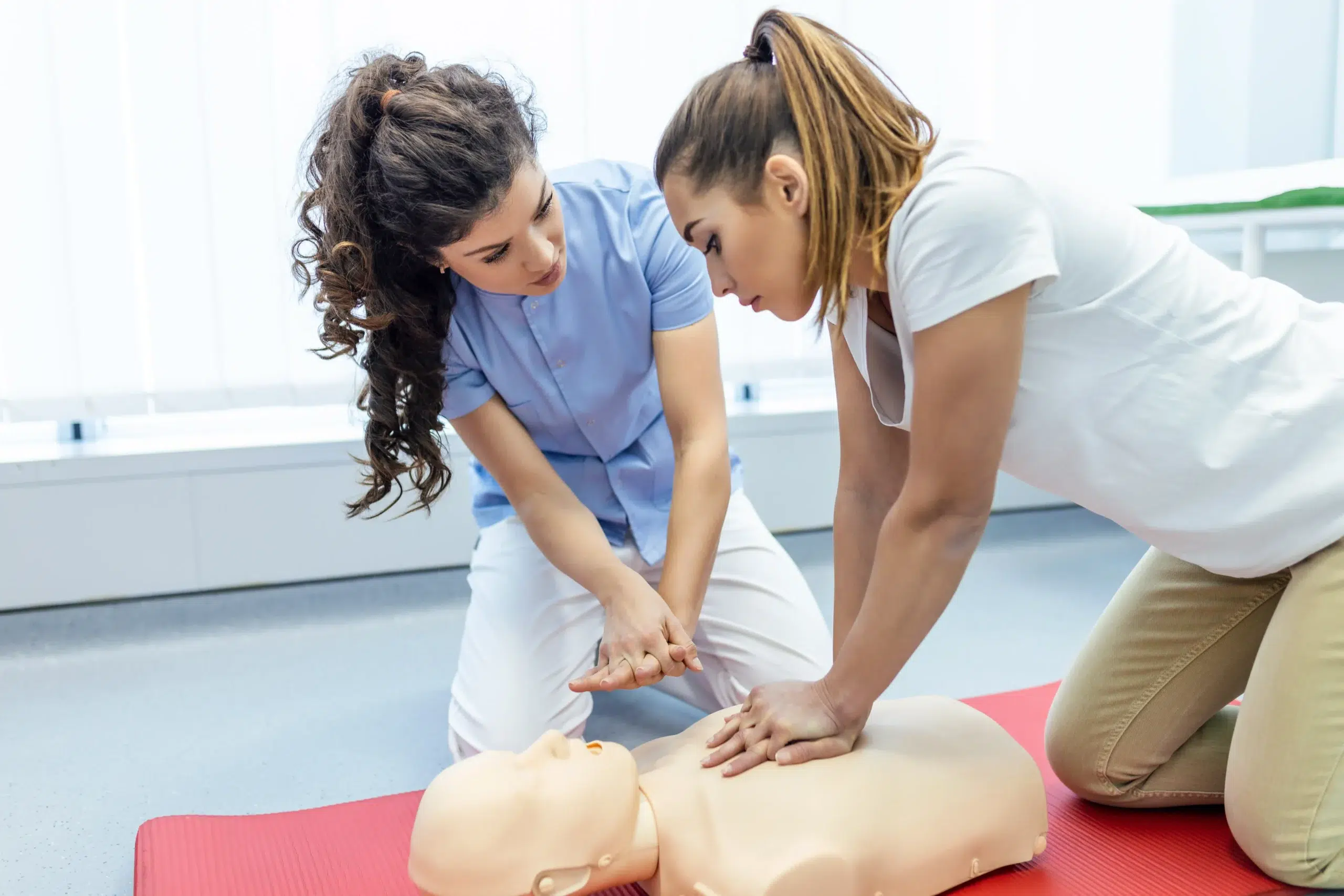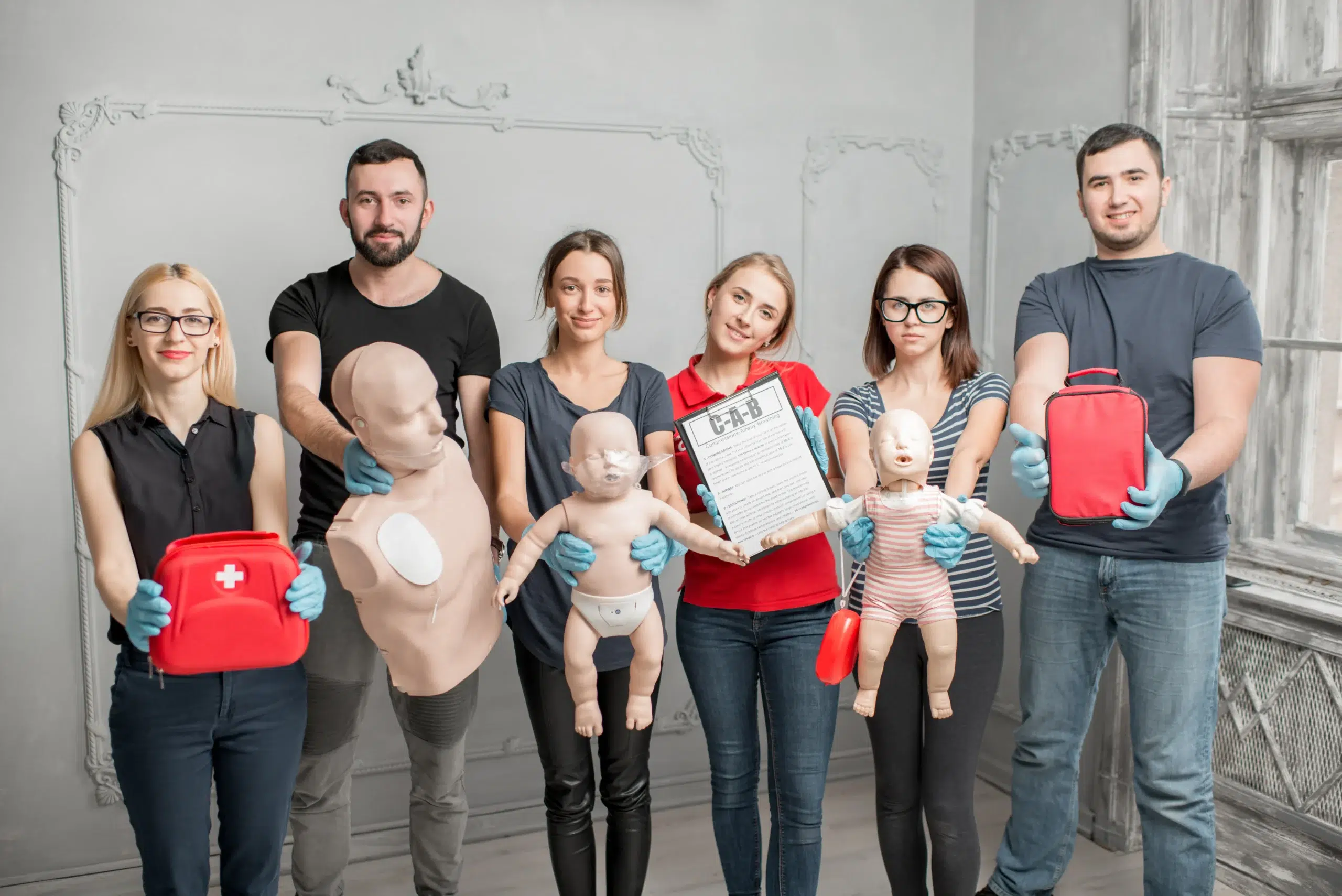Life throws curveballs. Sometimes, those curveballs involve medical emergencies—a child choking on a grape, a grandparent experiencing a sudden cardiac arrest, a coworker collapsing. In these critical moments, knowing first-aid can transform you from a bystander into a lifesaver. It’s about more than just bandages and ice packs; it’s about equipping yourself with the skills and confidence to respond effectively when it matters most. This guide explores the importance of first-aid, the various types of training available, and how you can find the perfect first-aid in Pleasant Hill to suit your needs. Because being prepared isn’t just about knowing what to do—it’s about having the power to make a difference.
Key Takeaways
- First aid skills are invaluable in emergencies. Knowing how to respond effectively can make a difference in a range of situations, from minor injuries to life-threatening events. Find a course that meets your specific needs and learning style.
- Choosing the right course requires research and consideration. Think about your certification requirements, preferred learning format (online or in-person), instructor experience, and practical aspects like cost, schedule, and location.
- Pleasant Hill CPR Classes offers comprehensive training options. They provide various courses, including specialized programs like RQI, and offer convenient scheduling, group discounts, and a low-price guarantee. Explore their website or contact them to find the right course for you.
What is First Aid and Why is it Important?
Knowing what to do in a medical emergency can make all the difference. This section covers the basics of first aid, why it matters, and what courses are available to get you trained.
What is First Aid?
First aid is the immediate assistance given to someone suffering from an injury or illness. It includes a wide range of skills, from treating minor cuts and burns to administering CPR in life-threatening situations. For medical professionals like nurses, first aid is a foundational skill, covering everything from basic wound care to life-saving interventions.
Why is First Aid Important?
First aid is crucial. It helps preserve life, prevent injuries from worsening, and promotes recovery. Learning these skills empowers you to respond effectively in emergencies. Whether it’s a minor injury or a serious cardiac event, your ability to provide first aid can be invaluable. Being trained makes you a vital resource at home, at work, or in your community.
What First Aid Courses are Available?
Several organizations offer first aid training, including the American Red Cross and the American Heart Association. Pleasant Hill CPR Classes provides a comprehensive selection of American Heart Association training courses, including CPR and first-aid certification. You can find courses covering various levels, from basic first aid to advanced certifications for healthcare providers. Many programs combine first aid training with CPR certification, giving you a well-rounded skill set to handle emergencies.
How Do I Choose the Right First Aid Course?
Finding the right first aid course can feel overwhelming, but by focusing on your needs and doing some research, you can easily find the perfect fit. Here’s a breakdown of key factors to consider:
What are My Requirements?
First, pinpoint why you need first aid training. Are you required to get certified for your job, or are you simply looking to gain valuable life skills? Different professions have different requirements. For example, healthcare providers often need certifications like Basic Life Support (BLS) through the American Heart Association. Knowing the specific certifications required by your employer or field is the first step. If you’re unsure, reach out to your employer or professional organization for clarification. Sometimes, prerequisites exist, such as holding a current basic-level CPR/AED certification before taking an instructor course. For those interested in becoming a certified instructor, the American Red Cross offers instructor-level courses with specific prerequisites.
How Do Courses Compare?
Once you know what you need, start comparing courses. Look at what each course covers. Some focus solely on CPR, while others include comprehensive training in first aid, AED use, and other emergency response skills. Pleasant Hill CPR Classes offers a range of courses, including BLS, ACLS, PALS, and more. Consider the format, too. Do you prefer in-person, hands-on learning, or would an online component work better for your schedule? For medical professionals seeking a streamlined certification process, the RQI program might be a good fit. It’s the most popular, modern, and fastest way for medical professionals to get their certifications.
How Do I Evaluate Instructors?
The instructor can make or break a course. Look for certified instructors with significant experience. Reading reviews or asking for recommendations can give you valuable insights into an instructor’s teaching style and effectiveness. Think about the learning environment, too. Local classes often offer the benefit of hands-on practice with equipment like CPR mannequins. Finally, don’t forget practical considerations like scheduling, location, and cost. Check if the provider offers a low price guarantee or group discounts. Contacting providers directly (Pleasant Hill CPR) to discuss your needs and ask questions is always a good idea.
Where Can I Find First Aid Training in Pleasant Hill?
Finding the right first aid training can feel overwhelming, but several excellent resources are available in Pleasant Hill. Here’s a rundown of some local providers to help you in your search:
Pleasant Hill CPR Classes
Pleasant Hill CPR Classes offers a comprehensive selection of American Heart Association training courses, including CPR and first-aid certification. They prioritize convenient daily classes, offer discounts for groups, and have a low-price guarantee. This makes them a solid choice whether you’re an individual looking for certification or coordinating training for a larger group. They also specialize in RQI programs, which streamline the certification process for healthcare professionals. Contact them today to learn more about their course offerings.
Safety Training Seminars
Safety Training Seminars stands out with its wide range of courses, including CPR, BLS, ACLS, PALS, NRP, EMSA Child Care Health & Safety, and First Aid. As an American Heart Association Training Center, they also offer a low-price guarantee, making them a good option for individuals and groups seeking various certifications. This breadth of courses makes them a one-stop shop for many safety and healthcare training needs. You can find more information on their website or by contacting them directly.
CPR Education
CPR Education provides group and individual CPR and First Aid training in Pleasant Hill. This flexibility caters to diverse learning preferences and scheduling needs. Reach out to them to discuss your specific requirements and find a course that fits your schedule.
American Red Cross
While the American Red Cross doesn’t offer basic first aid certification classes directly in Pleasant Hill, they do provide instructor-level training for those who already hold a current basic-level First Aid/CPR/AED certification. This is a great option for individuals looking to advance their skills and teach others.
Bay Area CPR
Bay Area CPR, in partnership with Safety Training Seminars, offers American Heart Association CPR, BLS, ACLS, and PALS classes in Pleasant Hill. This partnership provides another convenient location for those seeking these essential certifications. Check their website for the latest schedule and course availability.
How Much Does First Aid Training Cost?
Knowing the cost of first aid training is a practical first step. Let’s break down the factors that influence pricing and explore ways to find a course that fits your budget.
Average Course Prices
First aid training courses in Pleasant Hill typically offer a range of prices depending on the type of certification. For example, Pleasant Hill CPR Classes provides various American Heart Association training courses, including CPR and first-aid certification, ensuring participants receive high-quality instruction.
Discounts
Many training centers, like Pleasant Hill CPR Classes, offer discounts for group training. This approach makes courses more affordable and empowers community members to become competent first responders.
Scheduling
For added convenience, Pleasant Hill CPR Classes offers American Heart Association BLS, ACLS, PALS, CPR, and First Aid certification courses every day. This flexible scheduling makes it easier to find a class that works for you.
Low Price Guarantees
Pleasant Hill CPR Classes emphasizes affordability with their low-price guarantee. This commitment ensures that individuals and groups seeking various certifications can access quality training without financial strain.
How Do I Prepare for My First Aid Course?
Getting ready for your first aid course doesn’t require intense preparation, but a little planning is always helpful. Knowing what to expect, gathering a few essentials, and understanding recertification processes can make your learning experience smoother and more effective. Plus, think about the positive impact your new skills will have on your community!
What Should I Expect?
First aid courses blend theory and hands-on practice. Expect interactive discussions, demonstrations by certified instructors, and plenty of opportunities to practice techniques like CPR and bandaging. You’ll learn to assess emergency situations, make quick decisions, and provide appropriate care until professional help arrives. The practical application of first aid skills is vast, from reviving someone experiencing cardiac arrest to stabilizing individuals in medical emergencies. First aid training equips you to handle a wide range of situations, making a real difference in critical moments.
What Materials Do I Need?
Most courses provide the necessary training materials, including manuals and practice equipment. A notebook and pen are always helpful for jotting down notes and questions. Comfortable clothing is recommended, especially for the practical sessions. Beyond these basics, check with your chosen training provider—like Pleasant Hill CPR Classes—to see if they have any specific recommendations. Taking a CPR and first aid certification course not only empowers you but also enhances safety and preparedness within the community.
How Do I Recertify?
First aid certifications typically require renewal every two years. The process usually involves completing a refresher course to stay current with the latest guidelines and techniques. For healthcare professionals in Pleasant Hill, the American Heart Association RQI program offers a streamlined way to recertify for BLS, ACLS, and PALS. It’s a popular and efficient option for maintaining these essential certifications.
How Does This Impact My Community?
Learning first aid empowers you to become a valuable asset to your community. Group training classes in Pleasant Hill equip individuals to respond effectively in emergencies, providing crucial support until professional medical personnel arrive. This creates a network of prepared individuals ready to assist in times of need, fostering a safer and more resilient community.
Related Articles
- Workplace CPR and First-Aid Training Benefits
- Why CPR is Vital for Healthcare and Public Safety
- First-Aid Training in Walnut Creek: Your Complete Guide
- CPR Certification in Pleasant Hill: A Complete Guide
- CPR & First-aid Classes in Pleasant Hill, CA – Pleasant Hill CPR Classes
Frequently Asked Questions
What’s the difference between CPR and first aid? CPR, or cardiopulmonary resuscitation, focuses specifically on restoring breathing and circulation in someone whose heart has stopped. First aid encompasses a broader range of skills for treating various injuries and illnesses, including CPR. Think of CPR as one piece of the larger first aid puzzle.
How often do I need to renew my first aid certification? Generally, first aid certifications are valid for two years. Renewal typically involves taking a refresher course to ensure your knowledge and skills are up-to-date. Always check with your certifying organization or employer for specific requirements, as they can sometimes vary. For healthcare professionals, programs like RQI offer a more flexible and convenient recertification process.
What if I’m nervous about the hands-on portion of the training? It’s completely normal to feel a little apprehensive about the hands-on parts of a first aid course. Know that instructors create a supportive learning environment. They guide you through each skill step-by-step, offering plenty of opportunities to practice in a safe and encouraging setting. The goal is to build your confidence and competence, so don’t hesitate to ask questions or request extra guidance.
Are online first aid courses as effective as in-person classes? Online courses offer a convenient way to learn the theoretical aspects of first aid, but they often lack the hands-on practice crucial for mastering essential skills like CPR and bandaging. While online components can be helpful supplements, in-person training provides the practical experience necessary to respond effectively in real-life emergencies.
How can I find affordable first aid training in my area? Many organizations offer affordable first aid training. Look for group discounts, which can significantly reduce the cost. Some providers also have low-price guarantees, ensuring you get the best value for your money. Contacting local training centers directly is always a good idea. They can provide information on pricing, available courses, and any special offers they might have.
